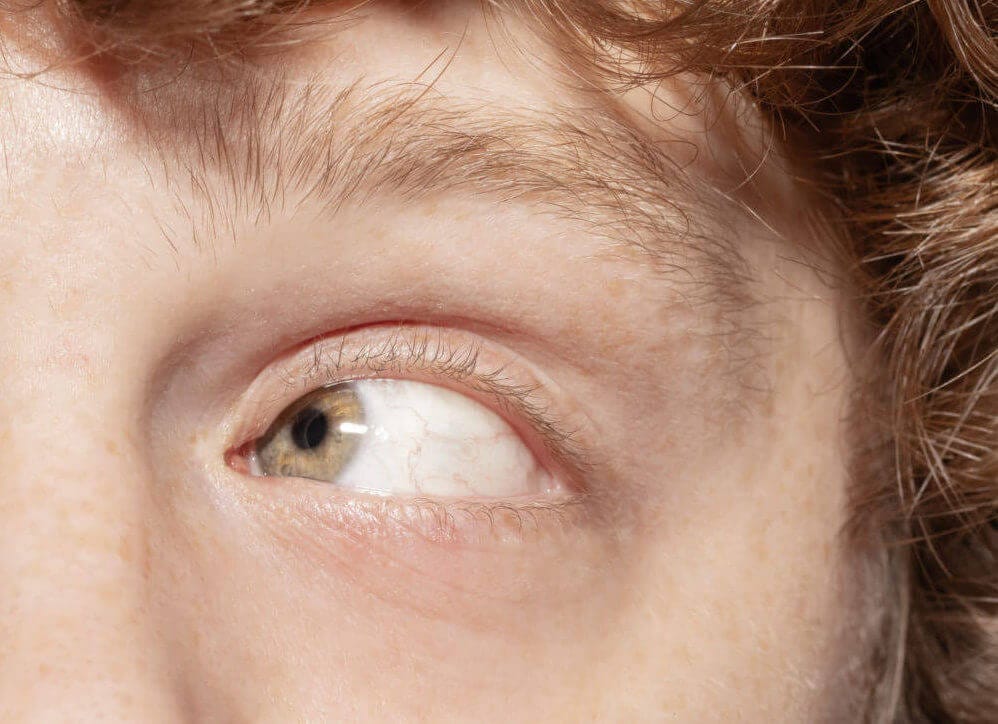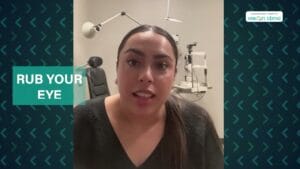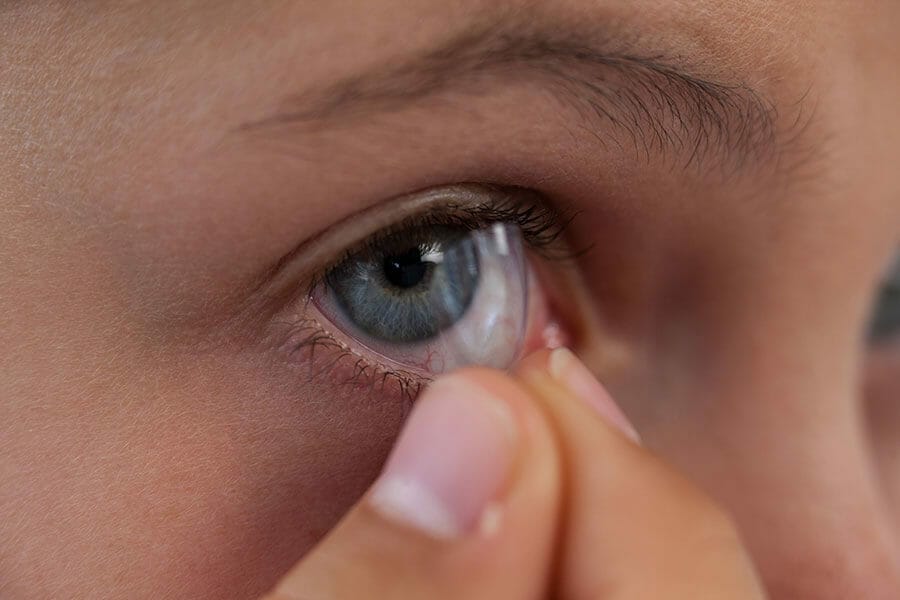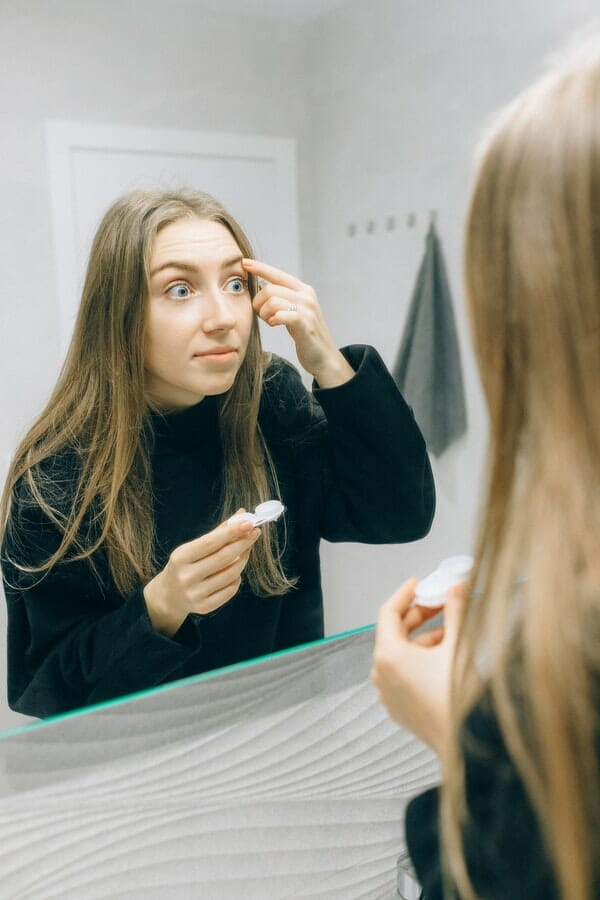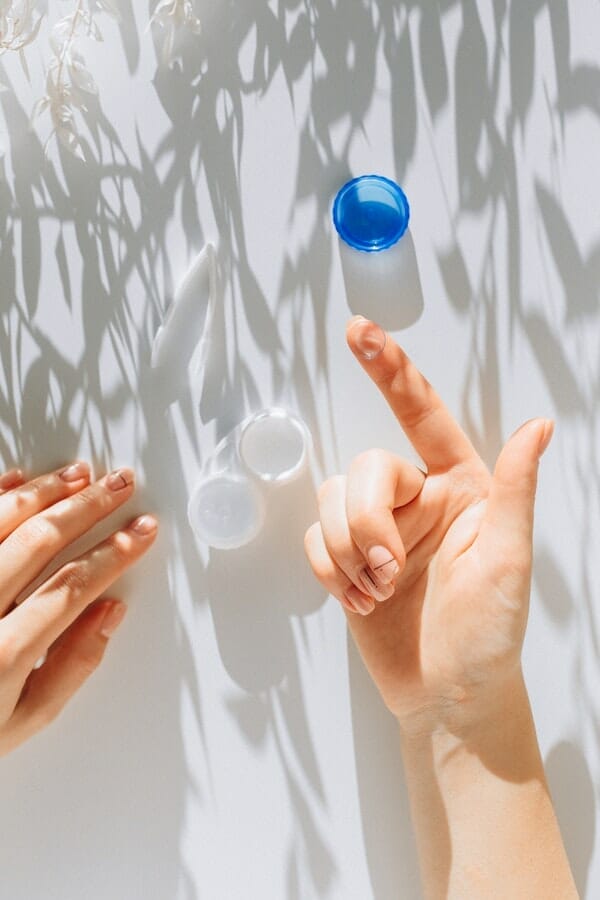What Should I Do if My Contact Lens Gets Lost in My Eye?
Soft Contact Lenses
The first thing to do if your contact gets dislodged while in your eye is to remember not to panic. Remember, it cannot actually go behind your eye, and it is highly unlikely to cause any damage to your eye. If you panic and try to pry it out too quickly, however, you might cause additional discomfort in the process.
In many cases, a contact lens will become “lost” in the eye after you bump or rub your eye while you are wearing the lens, and the lens becomes folded and stuck under the upper eyelid.
In these cases,you can try adding some contact lens rewetting drops to your eye, then gently massage the eyelid with the eye closed. Most of the time, this will help move the folded lens to a position where you can easily locate and remove it. Once the lens is removed, you can then soak it in solution and rub it gently for a few seconds. This usually returns the lens to its original shape.
If this doesn’t work, you can try gently turning your upper eyelid inside out. (This might sound scary and gross, but it really isn’t.) A good way to do this is to place a Q-Tip horizontally just over the outside of your eyelid, then, while looking down, grab the eyelashes and gently and quickly flip the eyelid inside out by folding it over the Q-Tip.
Once you do this, keep looking down with your head tilted back as you use your other eye to find the offending contact lens. Use the eyelid to gently move the contact to the front of there eye, where you can remove it.
If this, too, doesn’t work, ask someone to help or contact an eye doctor as quickly as possible. But remember not to panic. The contact lens cannot get stuck behind your eye or otherwise get lost forever.
Gas Permeable Lenses
If you are wearing hard contact lenses or gas permeable lenses and they get stuck in your eye do not massage your eyelid. This may cause abrasion to the eye. Instead of that, you should use eye drops to lubricate the eye, and then gently try to remove the lens. If this doesn’t work, contact your eye doctor immediately for additional assistance.

